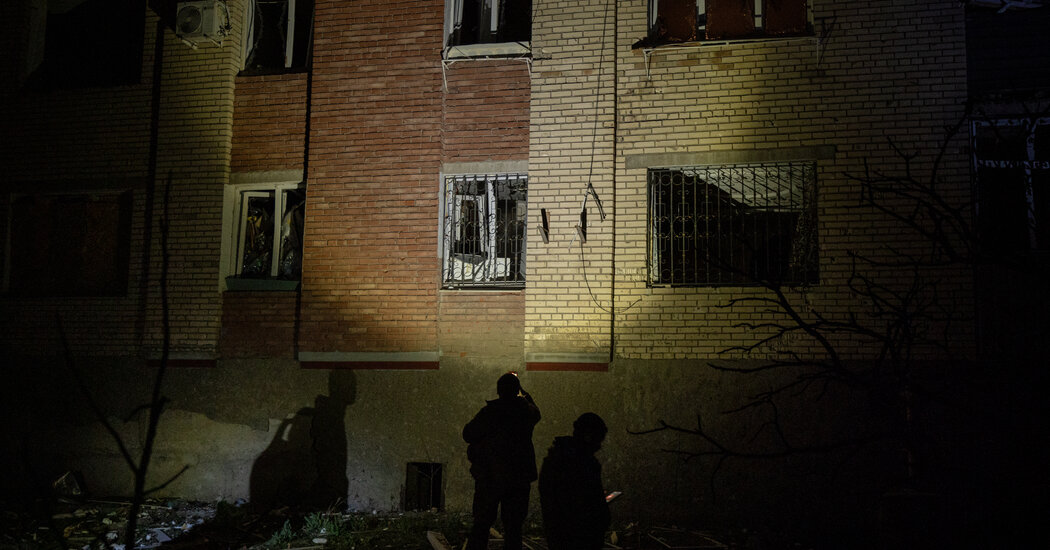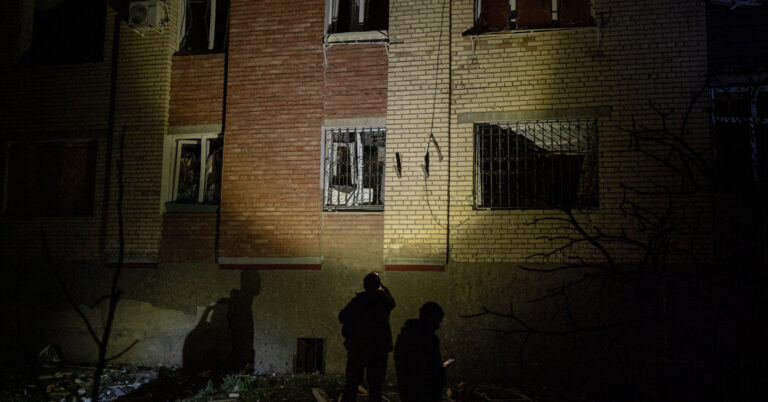Russian officials started a tour of interviews with the United States representatives on Monday in Saudi Arabia, Russian state news reports reported, following a similar meeting on Sunday between American and Ukrainian delegations. The talks aim to resolve the details of a possible ceased fire in what could be a crucial step towards a full cessation of hostility in the Russian war with Ukraine.
Last week Russia and Ukraine agreed to temporarily stop strikes on energy infrastructures, but how and when to implement that partial respite they are questions that still have to be decided while the attacks persist.
The talks – held in Riyadh, the Saudi capital, with the American representatives that median – should focus on hammering these details and on safety for shipping in the Black Sea.
Ukraine was the first to keep interviews with the United States on Sunday. Rustem Umerov, the Ukrainian Defense Minister at the helm of his country’s delegation, said that those talks lasted about five hours. “The discussion was productive and focused: we faced the key points including energy,” he wrote on social media, without offering details.
A Ukrainian official, speaking on condition of anonymity to discuss a delicate question, said that the Ukrainian delegation could keep further discussions with US officials on Monday, depending on the progress.
Steve Witkoff, which President Trump has exploited to be his personal correspondent to President Vladimir V. Putin of Russia, said that the final goal of the interviews is a ceased the complete fire of 30 days that would allow the time to negotiate on a permanent truce.
But the path to such a truce has been shaky. Moscow continues to insist on the maximum positions, including the affirmation of territorial control and ensuring that Ukraine never unites to NATO. The Ukrainian government has repeatedly affirmed that it will not grant the requests of the Kremlin and has accused Mr. Putin stall for the time.
Unlike the previous discussions of ceased the fire, which involved the best government officials from all sides, this new round will focus on technical issues and mainly involve diplomats and government consultants. Keith Kellogg, the United States special envoy in Ukraine, said that the American delegation included part of its staff, together with Michael Anton, director of the policy planning at the State Department; And they help the national security councilor, Michael Waltz.
The Russian delegation
Dmitri S. Peskov, spokesman for the Kremlin, said on Friday that Putin had personally selected the negotiators for the interviews, a delegation led by Grigory B. Karasin, a Russian diplomatic senior and legislator; and Sergey O. Beseda, consultant of the head of the federal security service, or FSB, the country’s domestic intelligence agency.
While Mr. Karasin was involved in previously sensitive foreign policy speeches, the choice of Mr. Baseda was a surprise for some.
An influential spymaster, Mr. Baseda was head of the FSB department responsible for international intelligence operations. It was described by Russian news as one of the main sources of intelligence that convinced Mr. Putin in 2022 that there was a pro-Russian feeling in Ukraine and that a lively invasion could easily dismantle the government in Kiev.
In 2023, Kyrylo Budanov, the Head of Ukrainian military intelligence, called Mr. Baseda a “very problematic person” for Ukrainian who “made a lot of hurt”.
The Ukrainian delegation
Ukrainian Defense Minister, Ukrainian Minister led the negotiations to Riyadh. He was reached by Pavlo Palisa, a best military adviser by President Volodymyr Zelensky.
Both Mr. Umerov and Mr. Palisa are members of the Ukrainian delegation for peace interviews that Mr. Zelensky has appointed this month, a group led by his head of the staff, Andriy Yermak. Umerov was a key negotiator for Ukraine in peace talks with Russian diplomats in the first months of the war.
Given the technical nature of the interviews on energy and shipping, Ukraine has also sent diplomats and public employees experts as part of its delegation. Ukrinform, the state press agency, said that the team included Foreign and Energy Vice Ministers, together with the best diplomatic consultant of Zelensky.
Zelensky said that Ukraine has prepared a list of infrastructure objects that could be included in the ceasefire agreement. He added that a third part should have monitored the ceasefire and suggested that the United States could do it.
While Russia and Ukraine could find common ground in energy and shipping interviews, both have defined conditions for a complete termination of hostility that seem irreconcilable – a sign of strong challenges in view of any wider negotiation of peace.
Moscow’s position
Last week, during a telephone conversation with Trump, Putin said that Russia would accept a temporary truce only if Ukraine stops mobilizing soldiers, training troops or importing weapons for the duration of any pause in the fighting.
Putin also asked for the complete arrest of foreign military aid and intelligence to Kyiv, calling it “the key condition to prevent a escalation of the conflict and make progress towards its resolution through political and diplomatic means”, according to the reading of the Cremlin call.
The White House said that military aid and sharing of intelligence in Ukraine will continue despite the requests of the Kremlin. But the Trump administration was less clear on Moscow requests for territorial concessions and, sometimes, seemed even to align with the position of the Kremlin.
Mr. Witkoff echoed to a point of discussion of the Cremlin on Sunday when he tried to legitimize the referendums on stage that the Russian occupation forces held in some parts of Ukraine to justify the annexation of those territories taken by military force. “In the country of Russia it is present that these are Russian territories,” said Witkoff to Fox News. “There are referendums within these territories that justify these actions”. These referendums were widely reported as fraudulent and illegal by the international community.
Basically, Russia’s position regarding the conflict remained the same. The Kremlin claims to want to “eliminate the causes at the root of the crisis”, essentially asking that Ukrainian Capitalasse. This would mean that the recognition of Kiev’s territorial gains of Russia, declaring neutrality and agrees to reduce its military, which would most likely leave Ukraine vulnerable to another invasion.
Kyiv’s position
Ukraine had previously agreed a 30 -day response respite to cease all combat operations, at the request of the Trump administration. But after Moscow said he would only support a partial cease on the fire on energy infrastructures, Zelensky spoke to Mr. Trump and accepted the limited truce.
In the last few days, Ukrainian officials have exposed red lines that enter the negotiations: Kyiv will never accept Russian sovereignty compared to the occupied Ukrainian territory, it will not accept to be blocked by joint to NATO or to reduce the size of its army and must have security guarantees as part of any peace agreement.
Many Ukrainian officials and analysts express doubts that even a ceased the limited fire will remain for a long time, noting that the previous plots between Moscow and Kyiv have been usually violated, with each side blameing the other.
“I don’t believe in a ceasefire. We have already lived before,” said Kostyanttyn Yeliseev, an expert diplomat and former Ukrainian Deputy Deputy Deputy who took part in the negotiations of ceased in 2014 and 2015 in an interview.
What’s the next?
Mr. Witkoff declared on Wednesday in an interview with Bloomberg News that Mr. Trump and Putin were “probably” to meet in Saudi Arabia within a few weeks. American officials will also continue to meet their Russian and Ukrainian counterparts in the Middle East to discuss the details of a possible limited respite.
But the foundations of the diplomatic process were shaky, analysts said, with Moscow and Kiev ready to continue fighting.
“Both sides still believe they can continue the war regardless of the American position,” said Dmitry Kuznets, a military analyst with the Russian store Meduza, who operates by Latvia after being put out of the Kremlin.
He added: “The visions of Moscow and Kiev on how an agreement could appear are still infinitely far away from each other”.
Maria Varenikova AND MINHO KIM Contributed relationships.





